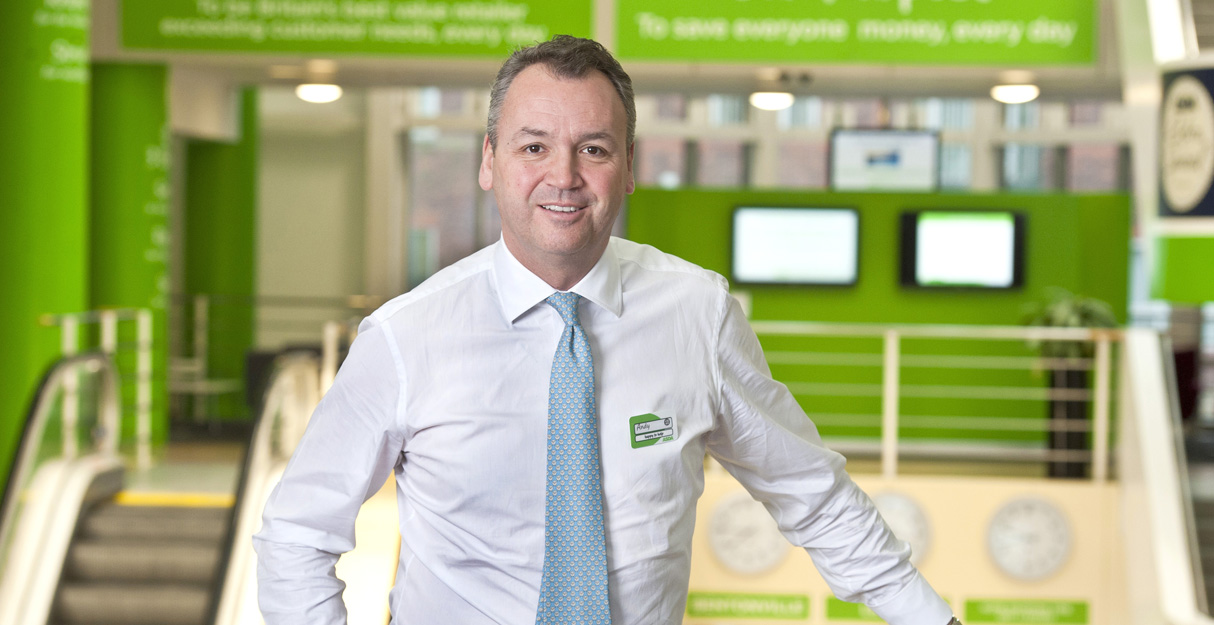Asda’s chief executive Andy Clarke has warned that supermarket trading conditions will remain tough for the foreseeable future, indicating that the retailer will continue to focus on low prices to gain market share.
In the last few days Mr Clarke has spoken to a number of press outlets as the supermarket said it would ‘invest’ £300 million during the first quarter of 2015 on reducing prices across its range, particularly ‘weekly essentials and big brands.’ In a press release the company cited cucumbers and russet apples among those products that would be ‘rolled back’ until the end of March. Asda has been criticised by the NFU for cutting milk and egg prices over the last week.
Speaking on BBC 5 Live last week, Clarke admitted that the rise of discounters, such as Lidl and Aldi, who together now account 8.6 per cent of the UK grocery market, were having a real effect on the ‘Big Four’ of Tesco, Asda, Sainsbury’s and Morrison’s. “The level of profitability decline in some retailers over the course of 2014 – we’ve never seen it before,” he said. “It suggests 2015 is going to be equally as challenging.”
Before Christmas Clarke told The Telegraph that Asda, which is owned by Wal-Mart, was about a year ahead of its rivals in terms of facing up to a marketplace dominated by lower prices and bigger discounts: “I have got a very simple view, which is get your prices to be the best in the market. We know we have got more work to do against the discounters, but in some categories we have got parity already. We have halved the price gap over the last two years; we have narrowed it further in the last year.
“Our ambition is to keep narrowing the price gap to the discounters and widening the price gap to the big grocers. We firmly believe customers are getting bored with gimmicks. They want transparency and they want clarity of basket pricing.”
In November accountancy firm Moore Stephens warned that the number of food production businesses which became insolvent in 2014 was 23 per cent higher than the previous year and that the trend could continue if supermarkets launched a full scale price war.




















